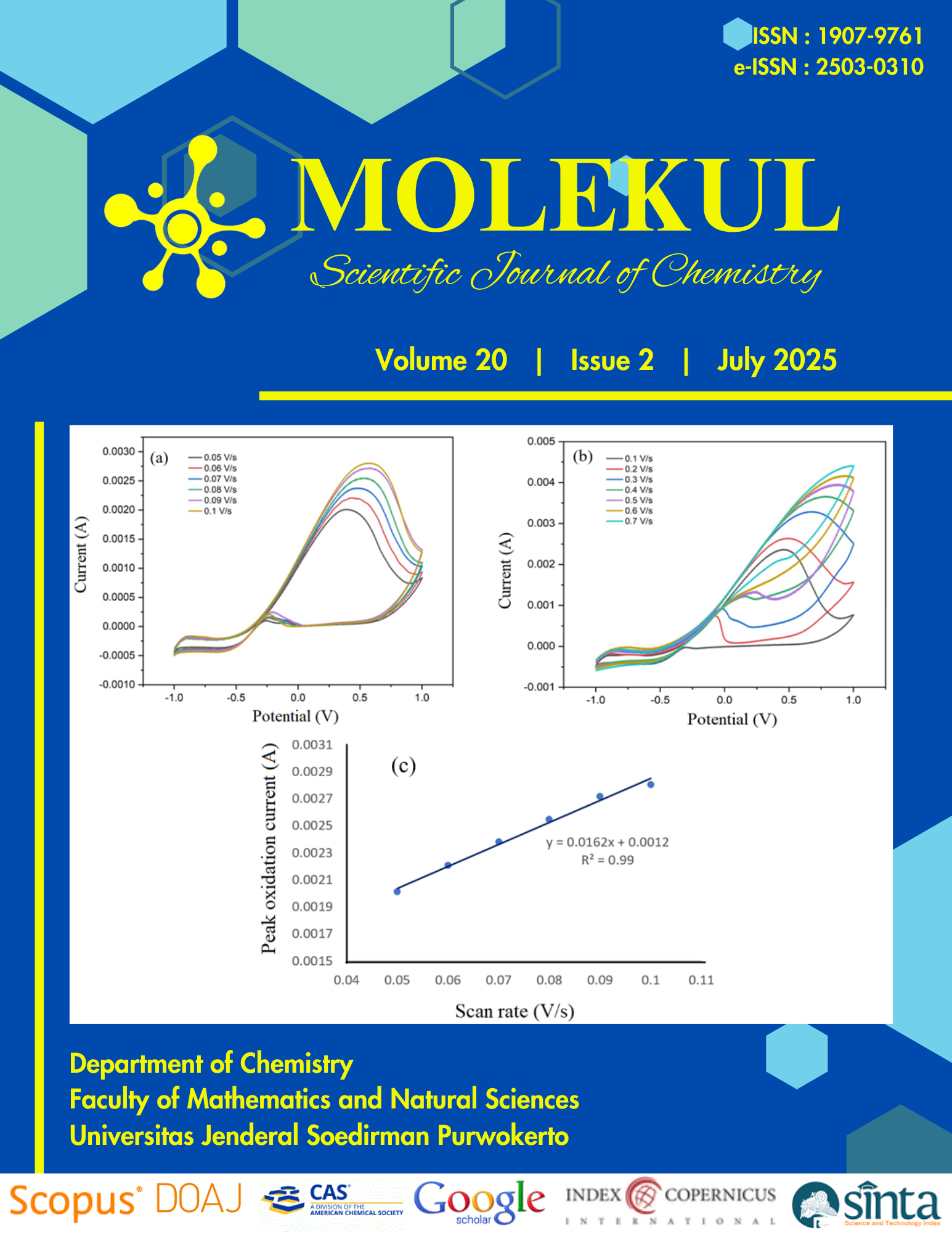Development and Characterization of Edible Films from Sodium Alginate and Arrowroot Starch Plasticized with Sorbitol
Abstract
ABSTRACT. The demand for eco-friendly packaging is growing in industrial applications. This study aimed to develop edible films using sorbitol, sodium alginate (SA), and arrowroot starch (ARS). Sorbitol, serving as a plasticizer, was evaluated for optimal concentration, while various SA:ARS ratios were tested for film formation. Physicochemical properties, including thickness, color, tensile strength, elongation, moisture content, opacity, water solubility, water vapor transmission rate, biodegradability, FTIR, and SEM morphology were analyzed. Results indicated that 0.5% sorbitol produced films with ideal thickness, color, tensile strength, and elongation. SA:ARS ratios significantly influenced film properties, with the 0.9:0.1 ratio yielding a thin, smooth, and highly biodegradable film. This formulation provides a basis for further edible film research and food industry applications.
Keywords: Arrowroot starch, edible film, sodium alginate, sorbitol
Authors agree with the statements below:
- Authors automatically transfer the copyright to the MOLEKUL journal and grant the journal right of first publication with the work simultaneously licensed under a Creative Commons Attribution 4.0 International License (CC BY 4.0).
- Authors are able to enter into separate permission for the non-exclusive distribution of the journal's published version of the work (e.g., post it to an institutional repository or publish it in a book), with an acknowledgment of its initial publication in this journal.













